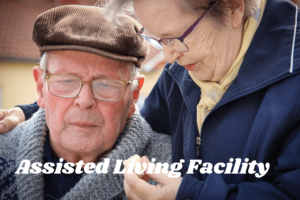Depression – Meaning, Causes, Symptoms, Treatment and More
Katherine, 37, works in a departmental store.
For a month, she is feeling sad, helpless and unable to concentrate on work.
She also has a problem in sleeping. Her physician referred her to a
psychiatrist who diagnosed the condition as depression.
According to data from authentic sources,
9.5% of American aged 18 and above suffer from depressive illness and thus
increasing the burden for healthcare services and social welfare organizations. As per 2020 statistics of World Health Organization (WHO) more than 264 million people suffer from it. Around 5% of adults globally suffer from depression.
Before proceeding further let’s understand
depression in detail.
What is Depression – Meaning and Definition
Depression can be defined as a feeling of
sadness, hopelessness and anxiety. Sometimes it has physical symptoms as well.
In other words, depression can be defined as
a mental disorder in which the sufferer feels low self-worth, sadness and an
inability to enjoy life. He feels fatigue, lack of energy and reduced agility.
The condition is also marked by sleeplessness.
As per the meaning given in Merriam Webster dictionary, depression is a mood disorder characterized by sadness, despair and
loneliness. The disease is also marked by guilt, lack of activity and
concentration and problems in sleeping. The sufferer may have suicidal
thoughts.
Causes of Depression
The exact causes of depression are yet to be
found but there are certain factors that may be contributing to it.
Abuse
People who have suffered physical and mental
abuse during their childhood are more likely to get depressed during their
adulthood.
Negative Life Experiences
People who have gone through negative life
experiences like breakup and death in the family have more chances to go
through depression. Not everyone reacts the same to a negative life event.
Age
Age of a person is also a deciding factor.
People in higher age groups are more likely to get depressed as they live alone
without a support system.
Medical Condition
Prolonged illness can also lead to
depression. People suffering from diabetes and cancer have more chances to
developing depression. Those suffering from heart diseases have twice the
chances of depression as compared to those who don’t have heart disease.
Substance Abuse
Substance abuse is one of the major causes of
depression. 1 in 5 people suffering from substance abuse disorder also suffers
from depression.
Gender
The likelihood of getting depressed is high
in women as compared to men. Several studies have shown that hormonal changes
in the female body increase the likelihood of depression.
Heredity
Some families have a history of depression.
The body has several genes that show their effect. Several studies have shown
the linkage of genes and depression. However, more research is required to
establish this linkage more profoundly.
Medicines
Some medicine can make you prone to
depression. Isotretinoin, which is used for the treatment of acne is one such
medicine. Apart from that, some antiviral drugs like interferon-alpha and
corticosteroids also increase the chance of depression.
Brain Structure
In some cases, brain structure is also
responsible for it. Several studies have shown a linkage between the frontal
lobe of the brain and depression. People suffering from depression has a less
active frontal lobe. More studies are needed to establish whether the less
active frontal lobe is the cause or effect of depression.
Family Dispute
What happens in the family has a direct
bearing on your mental health. People with family conflicts are more vulnerable
to go under depression.
Life Changes
Major life events can also cause depression.
Moving to a different city, loss of job or income and divorce could lead to
divorce.
Signs and Symptoms of Depression
After knowing the causes, it is relevant to
know the symptoms of depression. Here it is worth mentioning that this disease
has a number of symptoms. Every person could have a different set of symptoms.
Here we list major symptoms.
A Feeling of Sadness
The sufferer would have a feeling of sadness.
This symptom will continue for a long. He will always feel low and sad without
a valid reason.
Hopelessness
The sufferer feels hopeless and guilty. He
will always think about losses and failures in his life. He would have negative
feelings and he may think that he won’t get successful even after trying hard.
Lake of Interest
People enjoy even smaller things in life but
those with depression may find a lack of interest in things. They stop taking
part in activities like sports, movies and going out with friends.
Continuous Fatigue
A feeling of tiredness or fatigue is one of
the major symptoms of depression. The sufferer always feels a lack of energy.
He feels sleepy oftentimes.
Sleep Problems
Difficulty in sleeping or insomnia is one of
the major symptoms of depression. Insomnia makes depression worse and vice
versa. As the person fails to get quality sleep, the condition leads to anxiety
and other mental disorders.
Irritability (particularly in men)
Depression has different symptoms in men and
women. One such symptom is irritability which is more common in men than women.
You can spot men showing risky behavior and manifesting anger.
Marked Shift in Appetite and Weight
Those suffering from depression can see
marked changes in appetite and weight. It differs from person to person.
Persons who face increased appetite can gain weight while those with a
decreased appetite can lose weight.
No Control Over Emotions
People suffering from depression have no
control over their thoughts. In a moment they will laugh, in another, they will
cry. They experience mood swings.
Suicidal Tendency
Some people suffering from depression may
have suicidal tendencies. They often talk about it. They often make plans for
it and even attempt suicide. If you are spotting such behavior in any depressed
person, you should call for emergency help.
Apart from that there are several other
symptoms of depression. Moving or talking slowly, difficulty in concentrating
and making decisions and headaches and cramps are prominent among them.
Diagnosis of Depression
Symptoms may hint toward depression but you
should go to a doctor who will diagnose it properly to ensure whether it is
depression or something else. Here is how a doctor may diagnose you.
Physical Examination
Your doctor may conduct a physical
examination. He will ask questions related to health. Sometimes depression may
be the sign of a physical problem.
Lab Test
Your doctor may prescribe physical
examination. The purpose of these tests to get an understanding of your health
statistics.
Psychiatric Assessment
Your doctor will conduct a psychiatric
assessment. He will ask several questions related to your thoughts, emotions,
feeling and other things. Some psychiatrists may ask you to answer a
questionnaire to assess you better.
DSM -5
Your psychiatrist may assess you on criteria
listed in the Diagnostic and Statistical Manual of Mental Disorders (DSM-5).
Here it is worth mentioning that DSM-5 criteria are suggested by the American Psychiatric Association.
Common Types of Depression
The types of depression have been named after
its symptoms. Here we list the major depression types along with their brief
information.
Major Depressive Disorder (MDD)
Major
depressive disorder is also referred to as a clinical depression. Such
depression interferes with day-to-day life. Sadness in mood, sleep problems and
suicidal tendencies are major symptoms.
Bipolar Depression
Bipolar depression or bipolar disorder is
characterized by low mood and high mood alternatively. People with this
disorder may be showing symptoms like lack of energy (during low mood), wild
ideas and making ambitious plans.
Psychotic Depression
People with psychotic depression experience
delusion and hallucinations. Their thinking is unreal and they are getting
affected by things that are not there.
Seasonal Affective Disorder (SAD)
Do you believe that change in season can lead
to depression? Yes, it is seasonal affective disorder (SAD). This depression
starts affecting during late fall and early winter but disappears during the
spring and summer seasons.
Premenstrual Dysphoric Disorder (PMDD)
Premenstrual Dysphoric Disorder (PMDD) is a
variant of Premenstrual Disorder that affects women. This disorder is more
common in days before the menstrual period. This depression is characterized by
extreme fatigue, sadness, anxiety, mood swings and irritability among other.
Persistent Depressive Disorder (PDD)
This disorder is also referred to as
dysthymia. Its symptoms are less severe but long-lasting. In some cases, the
symptoms last for two years or even more. The sufferer always feels down. The
disease can be better handled with psychotherapy and medication. TMS therapy
and lifestyle changes.
Postpartum Depression
Postpartum depression is also sometimes called
as perinatal depression. This depression occurs around pregnancy and continues
up to a year post-delivery. The sufferer experiences mild sadness, worry or
stress during it. Social withdrawal, mood swings and change in appetite are
other symptoms.
Read more on postpartum depression
Therapy and Treatment of Depression
Depression takes a toll on our lives making
us less or nonproductive. But it can be treated. Here we list the major
therapies and treatment options available.
Medication
Most of the time a doctor prescribes
antidepressants to control the symptoms. Antidepressants take a week or two to
show results. Some antidepressants have side effects that reduce with time. If
they persist, you should talk to your doctor.
Psychotherapy
Psychotherapy or counseling is a therapy in
which a patient talks to a doctor. The psychotherapist talks to the patients
about underlying problems and suggests solutions. He also suggests coping
skills. The duration of therapy depends upon the seriousness of depression.
Psychotherapy may use techniques like:
- Cognitive Behavioral Therapy (CBT)
- Dialectical Behavior Therapy (DBT)
- Psychodynamic Therapy
Also
Read
10 Self-Help Books on Cognitive Behavioral
Therapy (CBT)
Alternative Medicines
A large number of people suffering from
depression also find respite through alternative medicine. Herbal therapy,
acupuncture and meditation are major therapies. Yoga, deep breathing and
massage have also been proven effective in treating depression.
Self-help Methods
Some self-help methods also help get relief
from depression. Doing regular exercise, positive thinking and good company
also helps. Reading self-help books on depression also helps to a good extent.
Brain Stimulation therapy
People with severe depression are treated
with brain stimulation therapy. Some of the major brain stimulation therapies
are as follows.
- Electroconvulsive Therapy (ECT)
- Transcranial Magnetic Stimulation (TMS)
- Vagus Nerve Stimulation (VNS).








